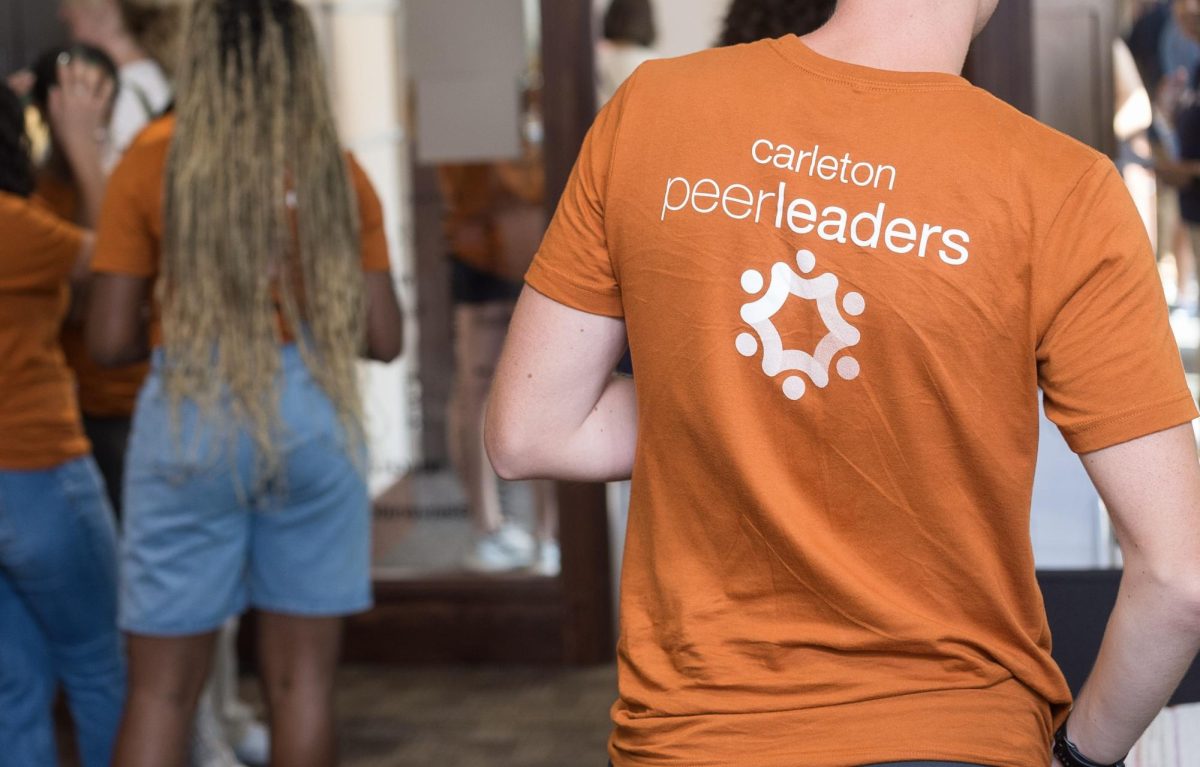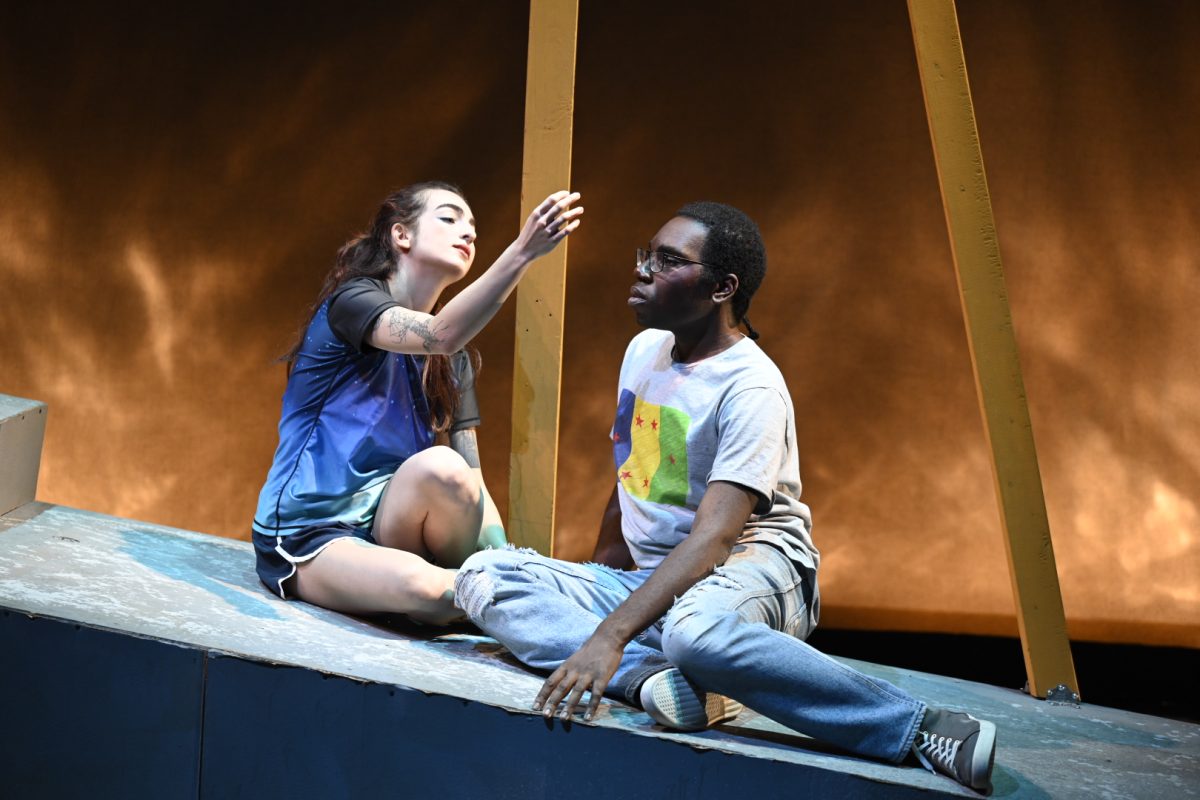Note from the Editors: This article was originally published on Feb 12, 2016. The Carletonian is 147 years old, with over 3,400 issues published since its inception. To reflect and learn from the newspaper’s substantial history, pieces from the archive that have particular relevance either to current events will be republished.
The summer after his first year at Carleton, Stu Lourey ’16 completed an internship at the Washington, DC office of US Sen. Al Franken (D-MN). When Lourey returned to campus in 2013, he helped organize Carleton’s participation in a two-week phone bank competition for Franken among colleges across Minnesota. Carleton won, even though it was up against much larger schools.
“It was really exciting to show that Carleton students are interested, show the value of off-year work, and have a ton of capacity to do a lot in elections,” Lourey said.
A year later, when Sen. Franken was up for reelection, Lourey saw an opportunity. He decided to spend his junior fall term off-campus as a political coordinator in the eighth congressional district, his home district, for the Franken campaign. “I thought it’d be valuable to take some time off from Carleton, personally, to really invest myself in something I believed in,” Lourey explained.
In his home area of northeastern Minnesota, Lourey’s responsibilities largely revolved around facilitating and maintaining relationships at the local political level. “It was really important to me that they had someone who really cared, and it was a really great opportunity to learn more about an area that I’m from,” Lourey said. Winning, he added, “was incredible.”
Lourey isn’t the only Carleton student involved in political campaigns. In this year’s presidential election, students were on the ground talking to voters before even a single vote was cast in the presidential primary. The weekend before the Iowa caucus, four members of Carls for Hillary drove down to Mason City, IA to canvass a neighborhood to get out and vote. Miko Zeldes-Roth ’18 had never canvassed for a candidate or spent time in Iowa, but he found himself in the group in Mason City two weeks ago.
“I went because I strongly support Hillary Clinton for president,” Zeldes-Roth said. As a prospective political science major, he continued, it was exciting to move beyond headlines and models to create a campaign that is responsive to current and potential supporters.
Zeldes-Roth said that perhaps most striking about the experience was the proximity of supporters of one candidate to supporters of another. In a political environment defined largely by polarization and geographic separation, the idea of a Hillary Clinton supporter living next door to a Ted Cruz supporter and a Bernie Sanders supporter might seems strange. Their lives and relationships are about “more than politics,” he said. Carls that have been “Feeling the Bern” have largely taken a different approach to engagement with their candidate.
Near the end of January, several members of the Carleton Students for Bernie Sanders group attended a “Future to Believe In” rally featuring Senator Sanders in St. Paul that drew a crowd of more than 14,000 people, according to Minnesota Public Radio. Such an event on its own serves little purpose for a campaign, since supporters willing to attend a rally are also likely willing to participate in their state’s primary or caucus. What the Sanders campaign has done so well, however, is convert the energy of a large rally into a substantial social media presence, through which many students – and Carls are no exception – can engage with the campaign from a separate geographic location.
That digital outreach is likely a major reason the Sanders campaign continues to have a tremendous amount of success with the young voters that have participated in the Iowa caucus and New Hampshire primary. Congressional races, however, often lack the grandeur of presidential campaigns There are rarely rallies with tens of thousands of supporters, millions of dollars raised overnight in small-dollar donations, or national media attention. These more localized races rely even more heavily on the most effective and efficient direct voter contact strategies, which can be a tremendous opportunity for groups of students.
Since healthcare executive Angie Craig became the de facto Democratic nominee in the race to replace US Rep. John Kline (R, MN-02), who represents Carleton and is not seeking reelection, the CarlDems have organized two phonebanks on her behalf and plan to hold two each week for the rest of winter term.
“My motivation for coming out is just to do my little part in helping progressive candidates get elected,” said CarlDems co-chair Zayn Saifullah ’17. “Phonebanking isn’t glamorous, but it’s completely necessary as part of a strong ground game. And without ground game, there’s no turn out. No turn out, no progressive victories.”
None of the students engaged on the campaign trail are under any illusions about the challenges of the work. “It’s really hard to ask your friends to do things,” said Lourey. “It’s hard to ask my friends to volunteer, because [I] know the different pulls on their time. I know the Carleton schedule – I’m here.” But organizers are a humble breed.
When asking for support, “it’s not a favor for me,” Lourey said. “We’re trying to help organize something that hopefully people are passionate about already, for their own reasons … it’s never about who’s organizing who’s making those asks. It’s about changes people want to see, and this is a way they can work towards making those happen.”














